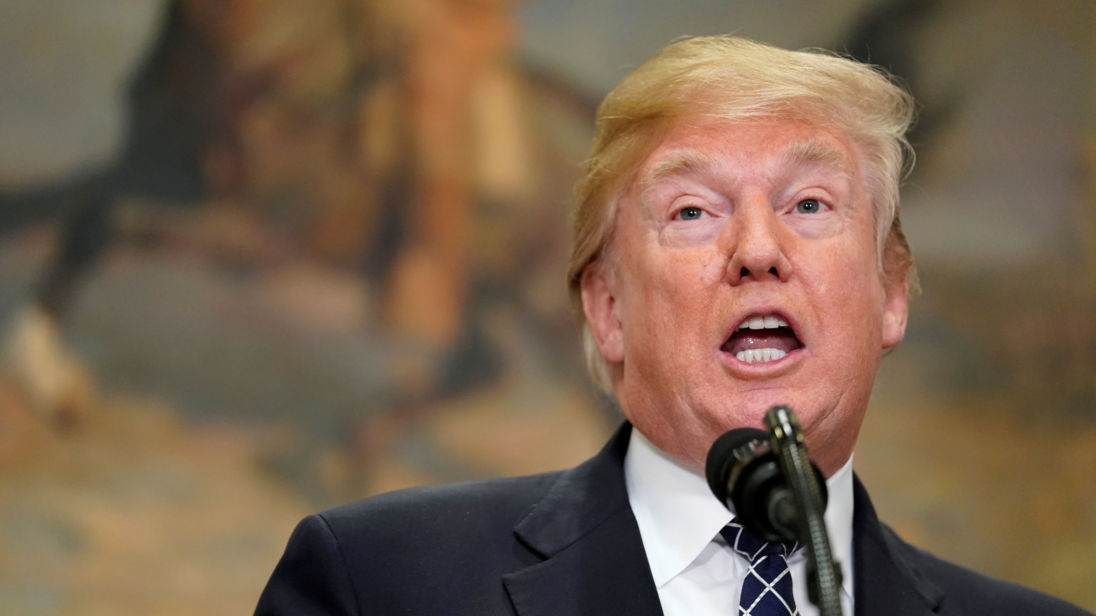Populism vs diplomacy
January 16, 2018 | Expert Insights

African nations like Ghana, Haiti and South Africa have summoned top US diplomats to explain US President Donald Trump’s recent remarks.
During a meeting regarding immigration, the President had reportedly referred to African nations as “shitholes.”
Background
US President Donald Trump is a polarizing figure in world politics. He has found himself being criticized for his actions and his statements in the past. He has been accused of sexism, misogyny, racism and more. Business leaders like Elon Musk have left councils within the administration due to statements made by Trump. He has been criticized by top athletes like LeBron James. World leaders like UK Prime Minister Theresa May have also condemned previous statements of the US President with regards to his stance on racism.
In November 2017, Donald Trump retweeted a handful of anti-Muslim videos posted by the deputy leader of Britain First. They were unverified and purported to show a group of Muslims pushing a boy off a roof. His actions evoked a rare condemnation from British Prime Minister, Theresa May. Her spokesperson stated, “Britain First seeks to divide communities by their use of hateful narratives that peddle lies and stoke tensions. They cause anxiety to law-abiding people. British people overwhelmingly reject the prejudiced rhetoric of the far right which is the antithesis of the values this country represents, decency, tolerance and respect.”
In January 2018, he made shocking comments regarding African countries during a bipartisan meeting on immigration with US lawmakers. He reportedly asked the lawmakers present: "Why do we want all these people from 'shithole countries' coming here?” He was referring to Haiti and African countries. The comment was first reported by the Washington Post and has since been confirmed by multiple outlets.
Historically, Trump is not the first President to be known for making crude remarks. During the Vietnam war, then President Johnson referred to the nation as “pissant country.” Former US President Nixon once referred to Henry Kissinger as “Jew boy.”
Analysis
As news began to emerge about Trump’s rhetoric, it was universally condemned by not only lawmakers within US but also evoked powerful responses from African nations as well. The African Union, the United Nations and foreign governments have all called on the controversial leader to apologize for his statements. Haitian government has since spoken against the US President and said that his remarks reflected a “racist view” of Haiti. In the wake of the controversy, the US ambassador to Panama has resigned over differences with the Trump administration.
Since the incident, a number of governments have summoned US diplomats stationed in those countries to explain the actions and the words of the US President. Top US diplomats in South Africa and Ghana were also summoned to meet with government officials regarding these statements. Other countries who called for meetings with US officials were Haiti, Botswana and Senegal.
For his part Trump has maintained that he did not make those specific comments and also noted that he was not a racist. In a recent statement to the press he said, “No, I'm not a racist. I am the least racist person you have ever interviewed.”
Members of South Africa's Department of International Relations and Cooperation met with the US Embassy charge d'affaires. Undersecretary of State Steven Goldstein said, “The President has the right to make whatever remarks he wants and we respect the President,” but diplomats have been instructed to "reaffirm that the US remains committed to its relationships with these countries and cares deeply about their people. They will have to work extra hard to send that message right now, but that's part of their responsibility. It doesn't change what they do.”
Former President Barrack Obama has not weighed in directly on the issue. However, in a recently broadcast interview, he stated, “One of the things that Michelle (his wife) figured out, in some ways faster than I did, was part of your ability to lead the country doesn't have to do with legislation, doesn't have to do with regulations, it has to do with shaping attitudes, shaping culture, increasing awareness.”
Assessment
Our assessment is that US President Donald Trump has emerged as one of the most divisive figures in modern political landscape. Within the span of one year, he has earned rebukes from the Middle East from nations like Iran and has been criticized by ally nations like France and Britain. He epitomises the compulsion of populist politics and amplifies how such rhetoric can affect international diplomacy and trigger global conflicts.








Comments